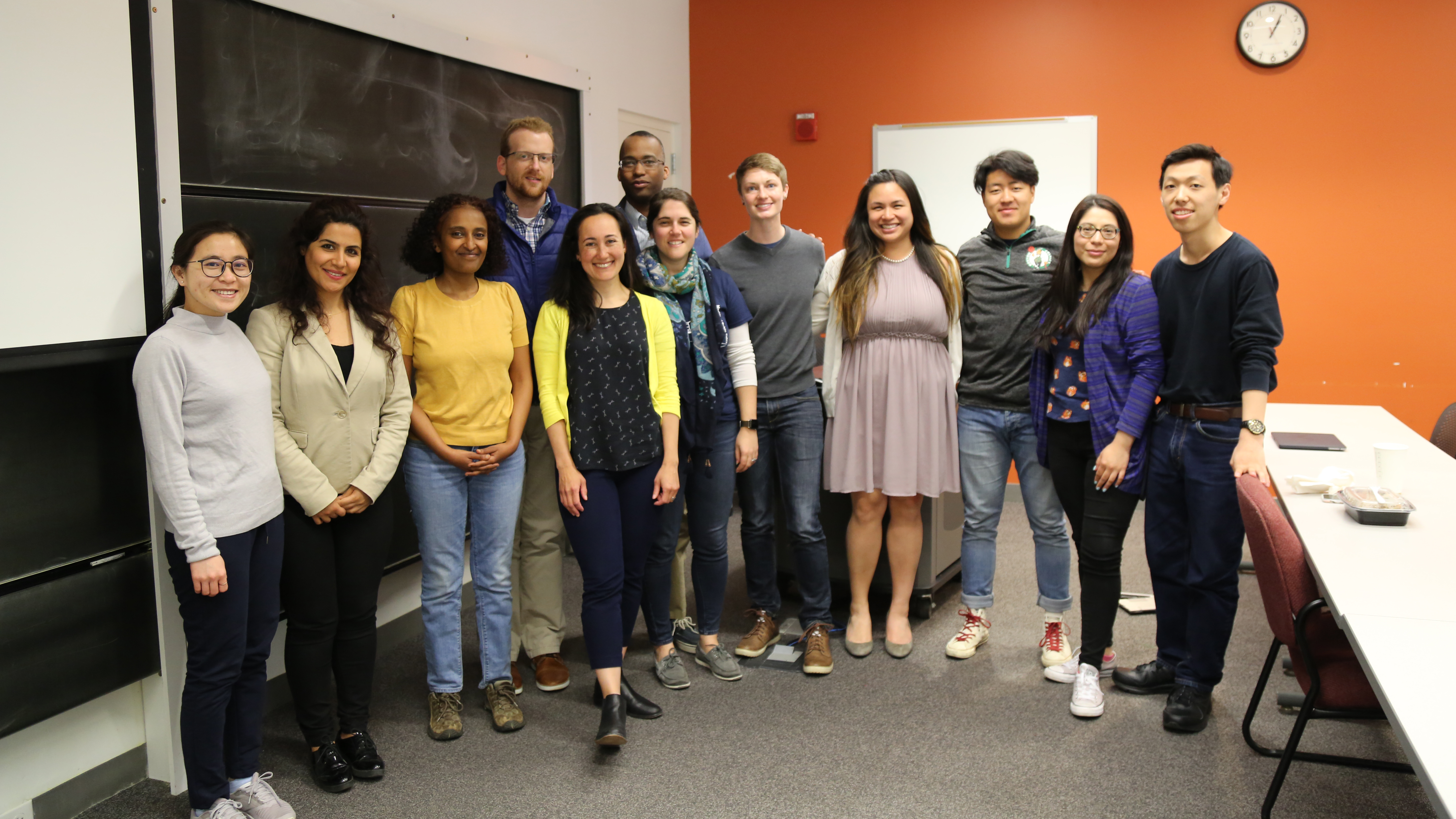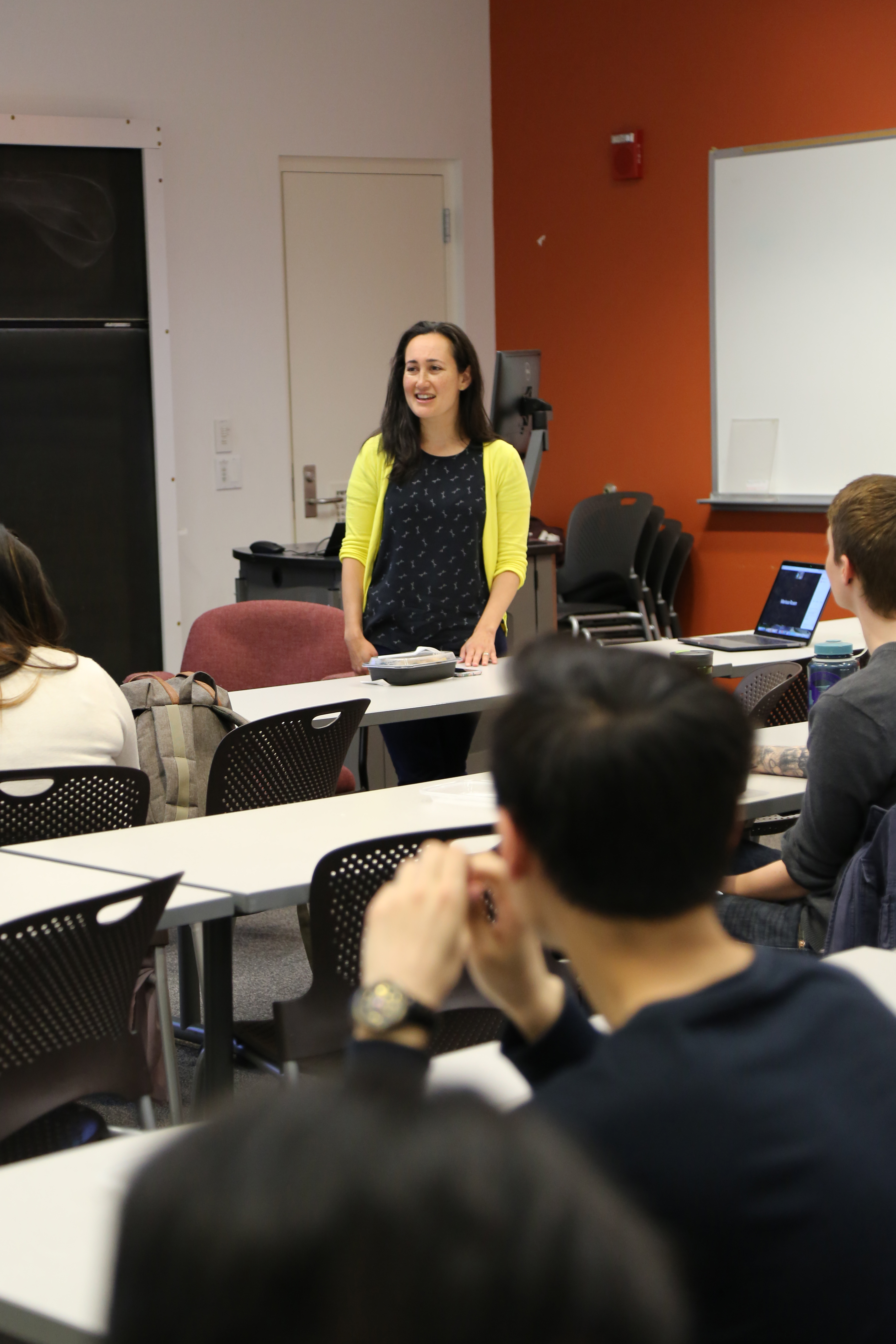
by Karen Shih
“How do you get a company to listen to you?”
That’s the question Sarah Zoen, MA SID’06, tackles every day at Oxfam America. As a senior policy advisor in the private sector department, she works to hold major companies, from Amazon to Coca-Cola, accountable for the human and environmental impacts of their businesses.
At a Lunch and Learn session hosted by the Heller Career Development Center, Zoen recounted her unusual path to her current role. She had studied art history in college and originally set out to work in a museum.
“Peace Corps completely changed my world,” she told Heller students. “It might sound cliché but it’s true. It definitely turned everything upside down for me and I was convinced that was what I wanted to do for the rest of my life.”
She came to Heller to study sustainable international development at the recommendation of a friend—and found her first job opportunity through a similar lunch program.

“I remember coming to one of these brown bags and talking to someone from Oxfam and they were working on this Fair Trade coffee campaign,” she said. That turned into a summer internship opportunity and eventually, a full-time job with Oxfam America after graduation.
Thirteen years later, she’s still with Oxfam. Zoen initially started working on worker rights in Mississippi and Louisiana during the Hurricane Katrina rebuilding process. As she later worked with farm worker unions to try to influence major companies to recognize workers’ rights, she found herself in an emerging field: corporate social responsibility. That led to her position in Oxfam’s private sector department. She’s worked on major projects like the “Behind the Brands” campaign, which targeted food producers like Nestlé, PepsiCo and General Mills and evaluated their treatment of women, farmers and other workers as well as their use of land and water. The work isn’t always adversarial: She’s also collaborated with companies like Mars to ensure that female farmers have access to opportunities and earn a living income.
Recently, her team at Oxfam started a new campaign, “Behind the Barcodes,” focused on six major U.S. supermarkets and their supply chains, starting with Whole Foods.
“Companies these days are good at recognizing their environmental footprint, but human rights fall by the wayside,” she said. The seafood sector, in particular, is rife with human rights abuses and is a key area Oxfam hopes supermarkets like Kroger and Stop & Shop will agree to reform.
During her visit to Heller, Zoen fielded a variety of questions from students, including how she’s stayed at one organization for so long, why she hasn’t made the jump from a nonprofit to the private sector, how Oxfam fits into the greater corporate social responsibility landscape, and tips for students who are job searching.
For the final question, she highlighted the importance of being able to quickly synthesize and communicate information both verbally and through writing, monitoring and evaluation skills, expertise in certain topic areas like gender, and most importantly, to be flexible. That’s what’s kept her at Oxfam all these years.
“Things can be unpredictable, but I like that,” she said. From early on in her career she thought, “I’m going to be opportunistic and entrepreneurial.”
